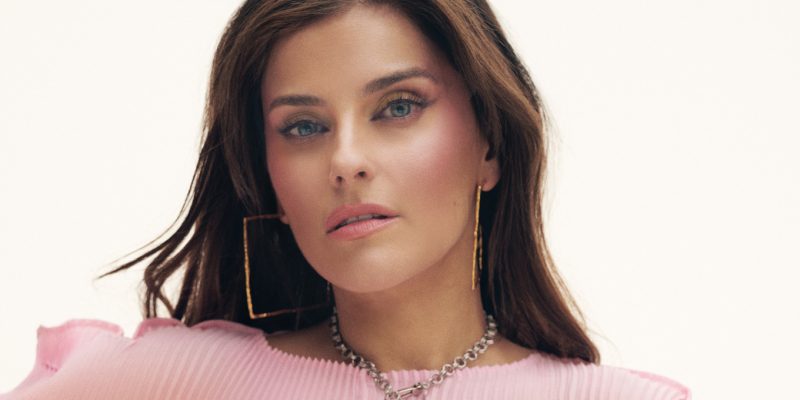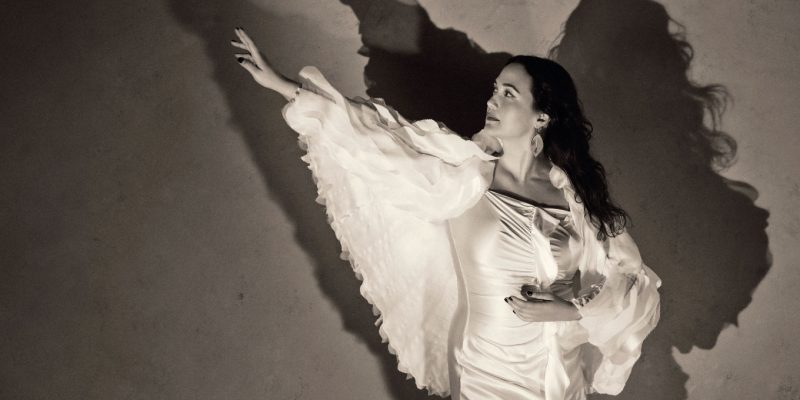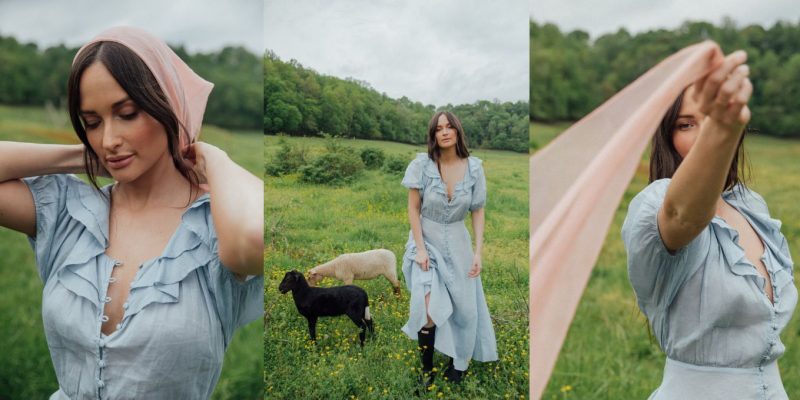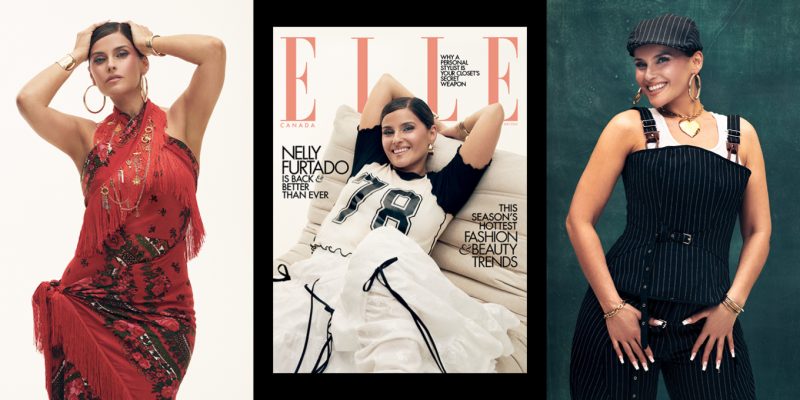Celebrity
EXCLUSIVE: Iggy Azalea as you've never heard her before
The controversial rapper is vulnerable, humble and ready to start over.
by : Aliyah Shamsher- Feb 29th, 2016
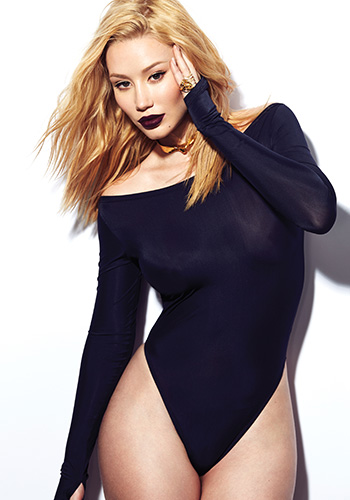
Iggy Azalea may be one of the most polarizing figures in the music industry today. Since releasing her first album, The New Classic, in 2014, the 25-year-old Australian has proudly defended her right to be a white female rapper. In doing so, she has amassed a legion of devoted fans who have been interacting on social media with the musician almost daily since her early days producing mixtapes. Shortly after releasing The New Classic, her singles “Fancy” and “Problem” held the number one and number two spots simultaneously on the Billboard Hot 100 chart. (FYI, no artist has been able to achieve this feat since the Beatles.) She has also received industry praise over the past two years in the form of four Grammy nominations, two American Music Awards and three Billboard Music Awards.
As all of this was happening, however, an emotionally charged debate about race, gender and the socio-political state of the hip-hop scene was also heating up. By mid-2015, the conversation engulfed Azalea when her public feud with rapper Azealia Banks went viral. In the wake of protests in Ferguson, Mo., New York and Baltimore, Md., Banks called her out for not commenting, tweeting her “Black Culture is cool, but black issues sure aren’t, huh?” The widely respected rapper Q-Tip jumped in shortly after with a series of tweets aimed at Azalea, informing her about the history of hip hop, while the hacker group Anonymous threatened to leak nudes of the musician if she didn’t apologize for misappropriating black culture.
There were also the weirder controversies, like when Azalea publicly fought with the pizza chain Papa John’s on Twitter after she gave a delivery man her phone number and began receiving calls from his family members. By the end of last year, Azalea had cancelled her tour, abandoned social media and retreated from the spotlight.
But on the eve of her second album release, Digital Distortion, Azalea says she’s ready for another go-round at the rap game. This time, however, much of her bravado (which fuelled the controversies) seems to have faded. Instead, she’s in a more reflective and even regretful mood. Over the phone late one Friday evening from her L.A. home, Azalea openly discussed her conflicted relationship with social media, her unapologetic love of rap and her much-talked-about upcoming wedding to Los Angeles Lakers player Nick Young.
You must be deep into wedding planning. There are so many rumours circulating about what could possibly happen on the big day….
“I know! My mom even asked me if I was having two weddings and lots of horses—I don’t know who wrote that. And to be honest, that sounds like a really trashy wedding that belongs on a reality show. I can tell you right now that my wedding is going to be pretty boring compared to what everyone has been writing about it.”
It’s not the first time online accounts of your life have been more fiction than fact. Back in February 2015, you said you were stepping away from social media and that your management was taking over your accounts. Are you back now?
“I’m back. But this time I’ve given myself some rules so I don’t get too sucked in again. For me, what happened, not just on social media but with everything in my career, was like a whirlwind. I started to feel like I was losing control over my own life. And it wasn’t just how people began perceiving me or the stories that were written about me—it was everything. I just felt like I had lost control of the whole thing to the point where it was like being on this rocket and then suddenly realizing you aren’t even driving it anymore. It was really scary. I even think back to the Papa John’s incident and ask myself ‘Why did that piss you off so much?’ I see now that it spiralled into something so quickly because I felt like I didn’t have any power over my own life. At that point, I needed to take some time, step away and just get that control back.”
Okay, so let’s really look at 2015. You grew up loving hip hop and rap, and you now get to participate in this community—
“Kind of…it depends on who you talk to.”
Well, you get to express yourself through rap. But for the majority of 2015, your relationship with the hip-hop community was incredibly fraught—how do you feel about this?
“So many people think that I don’t care about rap music and the community, but I absolutely care about it, to the core of my being. That’s why the Q-Tip incident annoyed me so much: Why do you think I need a history lesson? Because surely if I did know anything about hip hop, I wouldn’t mix pop and rap together? Or I wouldn’t rap in an American accent if I truly understood? I just have a different perspective about rap music. I love learning about hip hop, I love reading about it and I actually love having debates with other people about it.”
Do you think there is any validity to the criticisms that have been levelled against you?
“Yes and no. Do you not like me because I rap with an American accent and I’m not American? Well, that’s valid on some level because that’s your opinion and I can’t change that. But I’m not trying to sound black—I just grew up in a country where on TV and in music and film, everyone was American or any Australian person in them put on an American accent. So I never saw it as strange at all. And I think it’s hard for Americans to understand this because, when you look at the entertainment industry, American culture is the dominating culture across the globe. A lot of people say ‘Imagine if someone rapped with a fake Australian accent.’ Well, okay, but you don’t turn on the TV and hear American people with fake Australian accents, so I don’t think it’s a fair comparison. I grew up watching Nicole Kidman speaking with an American accent in every movie. Even Keith Urban sings with an American country accent. And that’s just what you have to do to make it in this industry and be accepted. It’s what I heard and it’s what I saw, so how can you not understand that that would be influential for me?”
But you understand why some people in the hip-hop community might find it problematic?
“Of course. It’s black culture and black music, so it becomes a racial conversation—versus Keith Urban, who is making country music, which is considered white. It becomes a very muddy area. And it became especially difficult in 2015. The United States has such a fraught history with race, and I don’t think I realized how prevalent racism still is and how hurt people still are until I moved here and saw it for myself. As I was growing up in Australia, it was easy to think ‘Well, that was then and obviously it’s not like that now.’ It’s not something you can understand when you’re on the other side of the world. But many people think I still live in that bubble and that I don’t understand that the United States is set up in a way that doesn’t benefit minorities. I’ve lived here for 10 years now, and I don’t want it to be that way either. I’m marrying a black man, and my children will be half black—of course I care about these things. And I understand if you’re not comfortable that I rap with an American accent, and you are totally entitled to your own opinions, but you don’t have to listen to my music. I’m still going to keep making music.”
Are you looking for acceptance from the hip-hop community?
“Certain people who don’t like me think that I don’t love rap music, but I love rap music. I love it like it’s my fucking husband…. I think a lot of people in hip hop have a tough time finding something in common with me. At least white [and black] male rappers both have dicks and they’re American. But for me, I’m a white woman from Australia. I get it, but I think we have a lot more in common than they think.”
If you could redo anything from 2015, would you?
“Umm, yeah…of course. If I could, I would Men in Black memory-erase 2015, I totally would—that would be amazing! Oh, God, there are so many things. I think the Azealia Banks thing is what really started it all. We don’t like each other on a personal level, and that has gone on for many years—before the Black Lives Matter incident happened. So when I dismissed her, people started to think that I dismissed the whole movement, but I wasn’t trying to dismiss Black Lives Matter—I was trying to dismiss her because it’s our personal shit. I don’t think the subject matter of her tweet was invalid; I just think it was emotionally charged and driven by something else, and the whole thing got so misconstrued. I just wish I had acknowledged the issue head-on because it made people think I don’t care about what’s going on socially and what’s happening in America, and I do care. Even though I still hate Azealia Banks, I wish I had said it in a way that didn’t make people think I was oblivious to the movement. And I wish I hadn’t gotten into a fight with Papa John’s!”
So will you be talking about these types of social issues moving forward?
“I think it’s important for music to reflect what is going on socially and for there to be those kinds of voices within the industry. But I want to be that person you can listen to for four minutes and not think about that stuff at all, and it’s important to have that too…. I’m not going to suddenly start rapping about political matters; it’s just not what I do. There are other great people who do that, like Kendrick Lamar and J. Cole. I’m not here to offer that commentary, but that doesn’t mean I don’t care. I don’t think everyone has to be everything—like, does Katy Perry have to start making songs about politics? I think it’s good to still be able to have a little fun.”
Social media is such a double-edged sword. On the one hand, it gives you a voice, which feels amazing when you first start out as an artist, but…
“But then you say stupid things! I know a lot of people in my position who don’t go on the Internet, but I was born in 1990. I grew up with it. It’s just part of life. You can do without it; I did without it for a couple of months and it was great. I was able to record my second album without any distractions, which really allowed me to enjoy the whole process again. Now I’m definitely back and talking to fans, but there are some things I don’t do anymore.”
Like what?
“I don’t look at the comments anymore. Well, I say that, but I’m only human. I love talking to fans, but then you end up in some random comment section and accidentally find things that can really affect you—whether you realize it or not at the time. It’s tough.”
At what point did you realize you were ready to go back online?
“I felt like not being on social media, in a way, was letting those other people win. And before, I felt like ‘Okay, so what if they win?’ I need my sanity, and if that is what it takes to have my sanity back, then they can win. But then I realized that there are people out there who do support me and want to interact with me online, and I shouldn’t let other people take that away from me and my fans.”
What did you learn about yourself through all of this? “I think the biggest lesson I learned is that people are going to say what they’re going to say. And it’s really hard not to get emotional or become overly sensitive about other people’s opinions, especially if you feel like they’re wrong. But I think I spent a lot of energy last year trying to explain my side of the story because I thought ‘If you could just understand my side, surely you’d agree with me.’ But some people aren’t ever going to agree with you—and that’s just life.”
That pretty much sums up your year in 2015.
“Yes, but in a weird way I’m glad for it all. Because of what happened, there were a lot of friendships that I ended up rekindling and people I started working with again. It made me reflect and change things that I may not have even considered changing before. So, I’m really glad that it all happened.”
One of those friendships is with your old producers, D.R.U.G.S., who produced your mixtape Ignorant Art in 2011.
“I’ve known these guys since 2010; they were my first friends when I moved to L.A. When I arrived there, a lot of producers didn’t understand my angle, but D.R.U.G.S. totally got it and we ended up making my mixtape. I didn’t even ask my label for a budget for this album—I just went to their house every day and we would just write stuff. I don’t want to record with anyone else, ever.”
Tell me about your new album, Digital Distortion.
“I wouldn’t say it’s an angry album. It’s still uptempo and fun, but it’s a little more grown-up and moody. I didn’t want people’s commentary to take me away from the style of music that I make…. There are some ‘Fuck yous’ and ‘Fuck yeahs,’ but I want people to hear it and feel good.”
Does the title reflect some of the “distortions” you experienced that year?
“The album has a bit of an electronic, digital influence, so the name fits sonically. But then, of course, topically, we all know the different things that were said about me in 2015—some of them were fair and some of them, I think, were unfair. I just think it’s interesting that we live in this age of digital distortion where we’re all distorting each other and distorting ourselves and our perception of who we all are, and none of it is really accurate anymore.”
Would you say that your persona of Iggy Azalea is a type of distortion?
“Not at all. It’s not like my alter ego or anything. It’s me. I’m not some quiet person or a complete introvert until I get onstage. Of course there are pieces of me you won’t see, but most of what you see in my music is present in my life. Maybe I am a bit more polite in real life versus online. I definitely don’t say ‘Fuck you’ all the time! It takes a lot to make me pissed off in real life.”
So you never actually set out to build a persona?
“I started calling myself Iggy Azalea in 2010; it was around the time I started making stop-motion animated videos with my freestyle rap because I felt like I had found my sound. But I was never like, ‘Let me create Iggy!’ And in 2010, I was only 20—I was just a kid! I think it’s rare to find anyone who has their identity locked down at that age.”
Do you remember when and why you fell in love with rap music?
“I was probably 13 or 14 years old. It fit with my teen angst at the time. I was totally obsessed with Tupac, but I also remember listening to Missy Elliott and OutKast. To be honest, sometimes I didn’t really know what anyone was talking about because I’m not from where they were from. But you didn’t have to understand every word to love a song. I was in China recently and our tour guide said that he loves rap music. When I asked him why, he said: ‘I just like the way it feels to say the words. Even though I don’t know what the words might mean, I like the way it feels to say them.’ And I can totally understand that. As a kid in Australia, I didn’t understand a lot of rap music either because I was too young or I didn’t get the context. But I knew that it made me feel good.”
When did you realize you could be more than just a fan of rap music, that you could be a rapper?
“I don’t really know why I thought it was possible since a lot of people kept telling me it was a shitty idea. And I don’t think I really thought I could be more than just a fan or that people would even like my music. But I loved rap and had so much fun making music that I just kept doing it.”
When you moved to Houston and Atlanta—and you met Southern rappers whom you’d admired your whole life—were you surprised that they wanted to mentor you?
“When I arrived, everyone was so welcoming and cool. I don’t think any of them thought I was a joke—I think they thought it was cool that I was so interested in learning how to rap so they let me come along for the ride.”
You’ve said in the past that it was during this time in your life that you really learned how to rap. What do you say to people who don’t agree with this idea that you can learn how to rap?
“That’s like saying you can’t learn how to dance. I do think I’ve always known how to fit into a pocket of a beat, and I love writing music. So I agree, you can’t teach that—but you still have to be a student. And if you’re not willing to be a student, then you’re not going to be great at anything—whatever your passion is. You have to learn things from people who know more than your minuscule knowledge as a beginner.”
What kinds of stories do you want people to be talking about this year when they hear your name?
“I feel like I got villainized so badly last year, to the point where I wasn’t even a person anymore. I just became this thing that everyone laughed at and would write awful things about—I think people forgot I was a person. People don’t have to like me, but I would appreciate it if they would still consider the fact that I’m a human being. You think Nick likes to hear that his fiancée doesn’t care about Black Lives Matter? Trust me, it was not fun last year in this house. No one wants to be told that they should kill themselves and that they’re like Hitler a hundred times a day; it’s not nice. At that point it goes beyond criticism, and, trust me, I can handle criticism; if I couldn’t, I wouldn’t be here with a second album, still standing. I think after what I went through, most people would quit, and I definitely considered it, but I really love rap music and I’m not going to stop making it.”
ONLINE EXCLUSIVE: We also asked Iggy to sound off on all those plastic surgery rumours…
“I think, in 2016, people should be more accepting of the fact that both famous and non-famous women are having cosmetic procedures. That’s just the reality. And I think more people need to admit that shit so it doesn’t have to be so taboo—because we’re all doing it anyway.”
“I wanted to change my nose because I didn’t grow up with a bump on it—that happened when I got smashed in the face with a soccer ball when I was 16. Now I feel like my nose looks the way it’s supposed to look. But for how long do we have to acknowledge that I got a nose job? For the rest of my life? Am I going to be 45 and people are still saying ‘Nice nose job’?”
“Everyone tells you that you should love your body the way it is, but then it is bad to say that you want to change something about yourself not because you want to look like someone else, just because you want to? What’s wrong with that?”
“There’s nothing black and white about beauty or plastic surgery. There are no guarantees that it will fix how you feel about yourself. All of those women [who criticize someone for having surgery]—if they had $10 million in their account tomorrow, I’d dare them not to change one thing about themselves or at least think about it. Yes, there are some women who wouldn’t change a thing, but, for the majority of us, we’d be thinking about that one thing. And there’s nothing wrong with that. I just hope that in 25 years the conversation will shift to where if a woman wants to change her body, all we say is ‘Good for her!’ instead of shaming her for making decisions about her own body.”
READ MORE:
EXCLUSIVE: Pop star Rita Ora is finally finding her voice
Meet the New Wave: 3 Canadian women changing the world their way
Newsletter
Join our mailing list for the latest and biggest in fashion trends, beauty, culture and celebrity.
More from Celebrity
Read Next

Fashion
Are Fashion Brands Getting Greener?
While the fashion industry is making a lot of noise about being more sustainable, a closer look shows that its earth-friendly commitments are often more illusion than reality.
by : Marouchka Franjulien- Apr 19th, 2024

Beauty
What Beauty Packaging Is Actually Sustainable?
We sought out leaders in the field to help us get to the bottom of the blue bin once and for all.
by : Victoria Christie- Apr 19th, 2024

Culture
Discover Club Med’s Stunning Exclusive Collection
Vacation destinations that bring pure luxury and comfort.
by : ELLE Canada- Apr 8th, 2024

